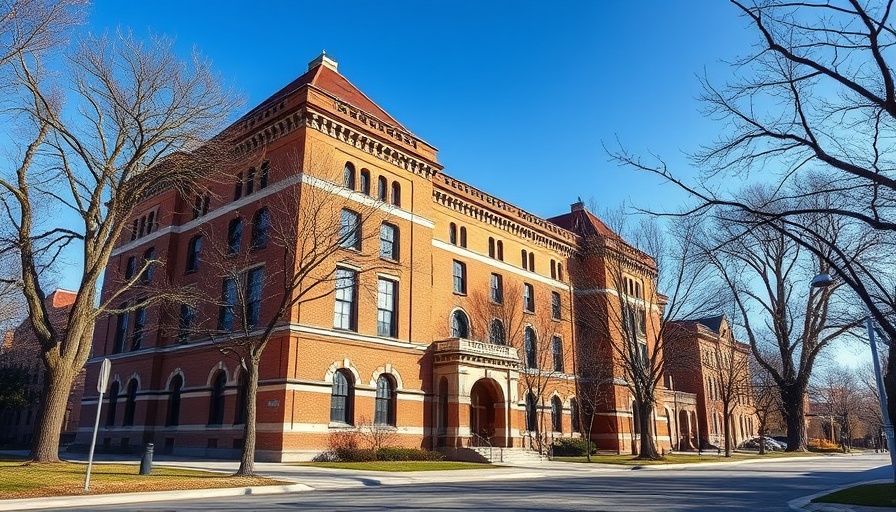
How a Local Bakery is Changing the Game in Milan
At Rich Grains Bakery in Milan, Michigan, mornings are bustling and full of energy. From the moment the first customers walk in, they are met with the delectable aromas of freshly baked breads and pastries. Owned by Kyle Purcell and his wife Abbie, this bakery is not just about baking; it’s about community, connection, and the joy of savoring fresh, good food.
The Allure of Freshness
Opening earlier this year, the bakery has quickly become a hotspot for locals. Its promising start is highlighted during special occasions, such as National Pretzel Day, commemorated by festivities and an array of pretzel offerings. As customer Karen Souders reflects on her frequent visits, she embodies the growth and enthusiasm surrounding this new establishment: "They’re awesome. I love it, I love it, I love it." This community support showcases the importance of local businesses in creating a familiar atmosphere.
The Unsung Heroes Behind the Counter
Behind the scenes, Kyle begins his days at 1 a.m., emphasizing the labor-intensive nature of baking. The meticulous process of preparing pretzels and other baked goods requires dedication and skill. Kyle shares, “When someone picks up a loaf and they’re like, wow, this is still warm. It’s like, that’s what you want, you know?” The connection between bakers and customers deepens when patrons are rewarded with warmth and freshness, enhancing their overall experience.
More Than Just a Business
The drive of Rich Grains Bakery transcends profit; it's about crafting experiences. Abbie Purcell remarks on this dynamic, noting that events designed for children and families foster a sense of community. “We decided to have a fun kids' event where if they come up and twist and shout for National Pretzel Day, they can get a free pretzel or a mini cheesecake bite,” she explains. Such initiatives not only attract customers but strengthen community bonds.
The Future of Local Bakeries: Embracing Opportunities
As consumers become increasingly inclined towards supporting local businesses, bakeries like Rich Grains are inspiring trends across Michigan. The unique experiences provided at local bakeries mark a shift towards valuing quality and community over mass production. The lessons learned in Milan may reverberate throughout the Great Lakes region, influencing budding entrepreneurs and established businesses alike.
Part of a Bigger Picture
The overall success of such local businesses plays a crucial role in regional economics. By opening their doors, Kyle and Abbie are ensuring that money circulates within their community, thereby fostering job creation and sustainability. They embody a model of entrepreneurship that champions local success and economic stability, vital aspects in a rapidly changing job market.
A New Era of Baking: Challenges and Triumphs
Every local entrepreneur faces obstacles, from rising ingredient costs to meeting diverse customer demands. However, Kyle’s commitment to his craft allows him to navigate these hurdles successfully. “You’ve got to stay flexible and adapt,” he insists while examining the dough resting on the counter. This mindset proves essential in building resilience against market fluctuations.
In Conclusion: Savoring the Journey Ahead
The story of Rich Grains Bakery is just beginning, yet it resonates deeply with a community yearning for authentic connection and quality. As Milan’s local food culture expands, the emphasis on fresh, delicious bread and pastries brings people together, one loaf at a time. As consumers dive deeper into supporting their local economies, bakeries and eateries grow the bonds that keep communities thriving.
In the words of Kyle Purcell, “Good bread is all about timing.” As they continue to serve up warmth and goodness at Rich Grains Bakery, the Purcells stand as an example of how local entrepreneurs can flourish by following their passion and serving their community.
 Add Row
Add Row  Add
Add 




Write A Comment